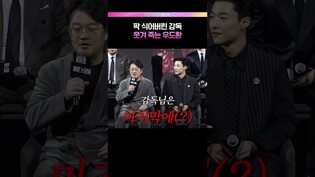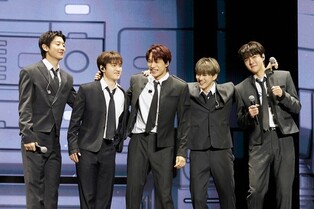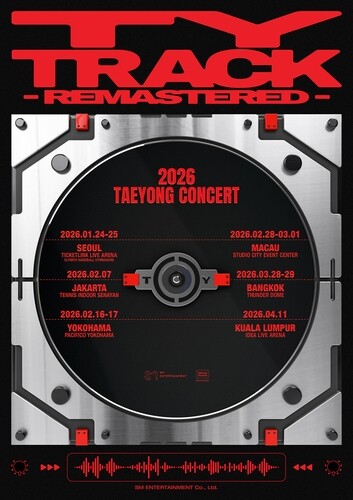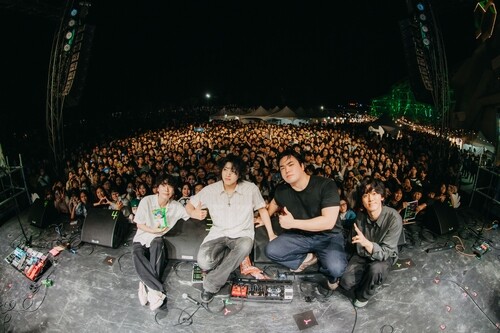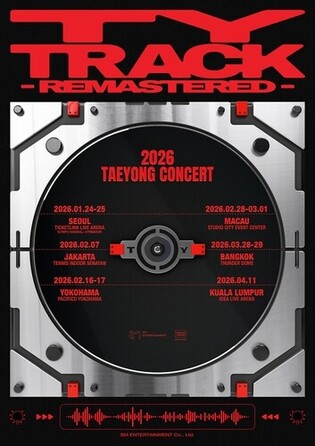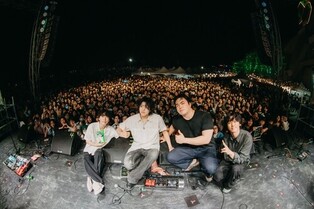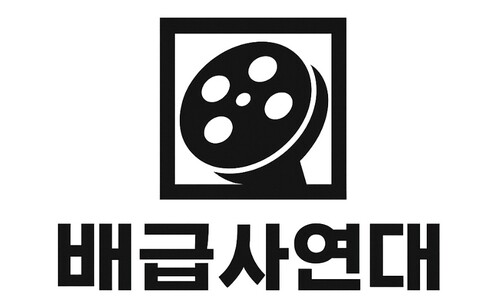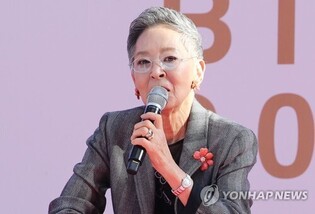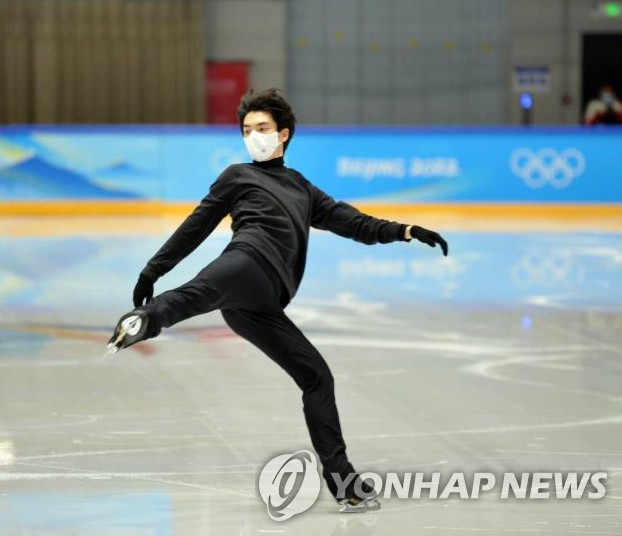 |
| ▲ South Korean figure skater Cha Jun-hwan trains at a practice rink next to Capital Indoor Stadium in Beijing on Feb. 4, 2022, in preparation for the Beijing Winter Olympics. (Yonhap) |
 |
| ▲ South Korean figure skater Cha Jun-hwan trains at a practice rink next to Capital Indoor Stadium in Beijing on Feb. 4, 2022, in preparation for the Beijing Winter Olympics. (Yonhap) |
(Olympics) figure skaters-training
(Olympics) S. Korea figure skaters keep masks on in training, not taking any chances
By Yoo Jee-ho
BEIJING, Feb. 5 (Yonhap) -- Two years into the global coronavirus pandemic, we should all be used to wearing masks by now. Still, it can be difficult to keep the face covering on the whole time.
But to skate at full speed, not to mention to jump, spin and dance on ice with the mask on for nearly 40 minutes? That's a whole different challenge.
And yet two South Korean Olympic figure skaters, Cha Jun-hwan and Lee Si-hyeong, didn't take any chances on Friday during their first training session for Beijing 2022.
Cha and Lee were grouped with two other skaters in their initial training session at a rink next to Capital Indoor Stadium in Beijing, the competition venue for all figure skating events. And only the two South Koreans kept their masks on the whole time, while the other two never wore their masks. Mask wearing during training or competition isn't mandatory.
Lee, who practiced some jumps, said it was "quite difficult" to breathe while wearing the mask. Lee said he was told that one of the two non-Korean skaters in the same training group had previously been diagnosed with COVID-19 before recovering in time for the Olympics.
"They wouldn't tell us who that skater was because of privacy issues," Lee added. "We also heard about athletes getting COVID-19 after arriving in Beijing. So we wanted to be careful out there today."
Cha didn't do any jumps on Friday and focused mostly on his steps and choreography, but he still found it hard to breathe at times.
"It was tough but it's important to do these things to stay healthy," Cha said. "I make sure I keep my hands clean all the time and do whatever it takes for health and safety."
Over 300 Olympic-related personnel have tested positive for COVID-19, according to the event's organizers, despite having been placed inside a bubble, otherwise called the "closed-loop system."
Athletes who test positive face lengthy quarantines and must turn in consecutive negative results 24 hours apart.
(END)
(C) Yonhap News Agency. All Rights Reserved


















![[풀영상] 디즈니+ '메이드 인 코리아' 제작발표회|현빈 Hyunbin·정우성 Jung Woosung·우도환·서은수·원지안·정성일·강길우·노재원·박용우|Made In Korea](/news/data/20251215/p179554206856695_165_h.jpg)
